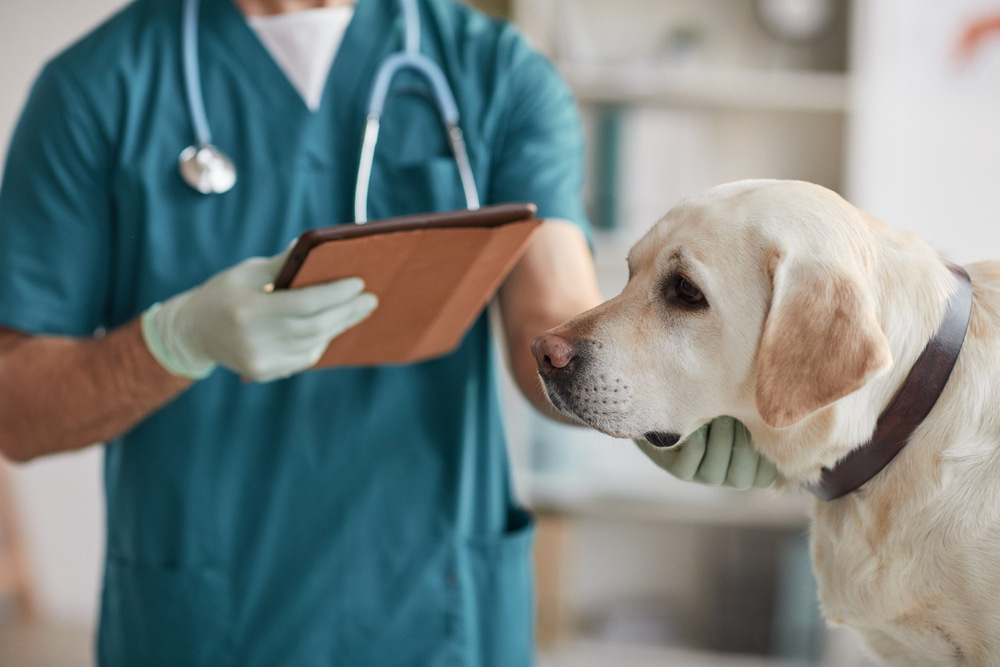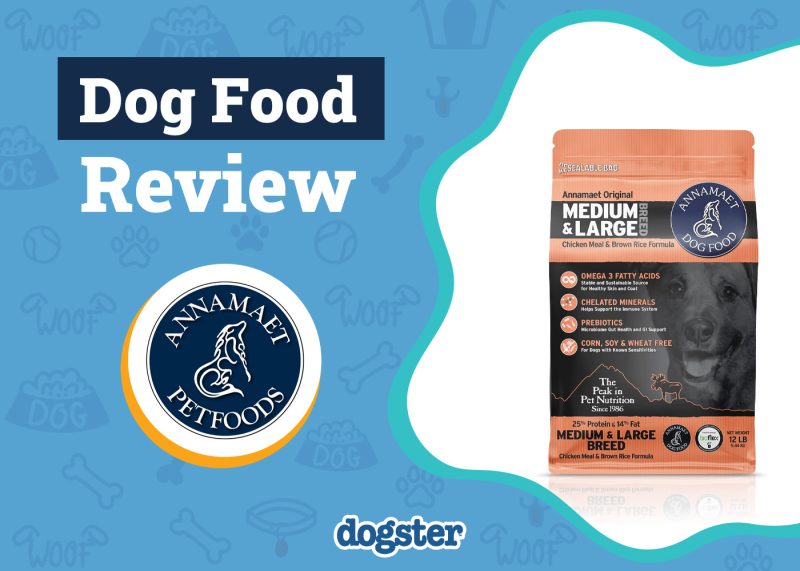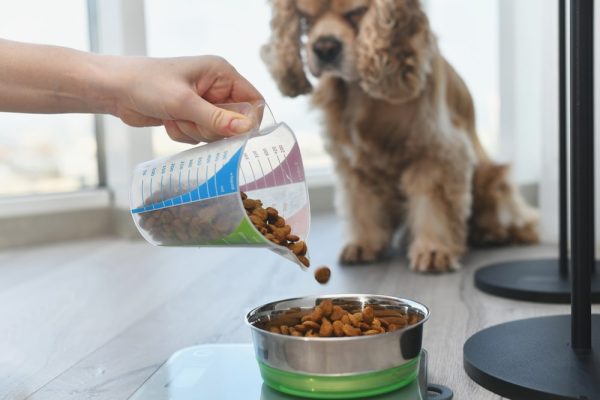Vomiting isn’t diagnostic; it’s a general response to expel something unpleasant or toxic. It can also be a sign of many other health conditions that may or may not affect the gastrointestinal system.
Vomiting can be acute or chronic. The former describes a short-term condition of up to a couple of days. It may be as benign as food intolerance that stops once the animal has expelled the offending item. However, it can be quite serious, particularly if it comes on suddenly in an otherwise healthy dog. The latter occurs when the condition continues for more than a couple of weeks, so determining its cause is imperative to avoid complications.
So, if your dog is vomiting, what are some of the signs that it’s time to see the vet? Check them out below.

The 10 Signs You Should Take Your Dog to the Vet Due to Vomiting
1. Vomiting With GI Distress
One of the risks of chronic vomiting is dehydration. It causes the body to get rid of more fluid than the animal is likely ingesting. Your pet’s health can deteriorate quickly without enough water, leading to dangerous electrolyte imbalances. The chances are greater if your pup also has diarrhea. A dog with stomach irritation probably won’t want to drink, either, further complicating matters.

2. Vomiting With Blood
Blood is always a scary sign. If your dog’s vomit has blood in it, it can indicate trauma from an injury or fall. It can also point to inflammatory bowel disease (IBD) or an ulcer. A major concern is gastrointestinal obstruction, which is a medical emergency. Other signs include abdominal swelling, pain, and fever. This condition often requires surgery to remove the foreign object.
3. Vomiting With Signs of Dehydration
An excellent way to gauge the severity of vomiting is to determine its effects on the animal’s hydration. You can test an animal for dehydration by pinching a fold of their skin, and it should snap back quickly when released. However, it will stay in position in a severely dehydrated pet. You can also examine the dog’s gums. Pale or dry gums may also point to this cause, and veterinary intervention is imperative.
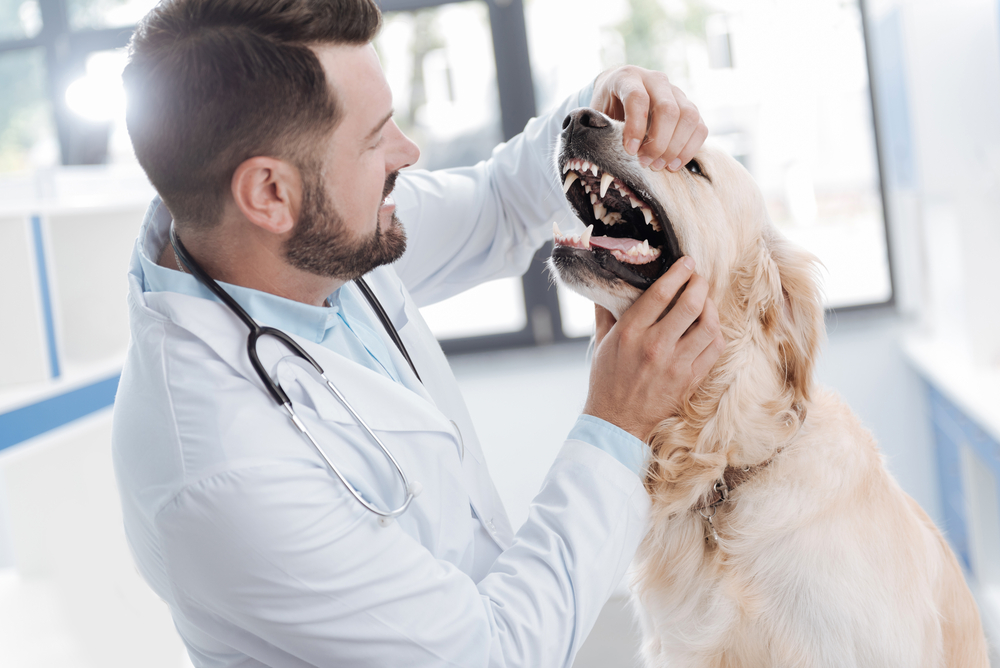
4. Vomiting Accompanied by a Fever
Many health conditions cause a myriad of signs. If your pooch is vomiting and has a fever, the animal’s body is likely fighting something serious, like an infection. The normal temperature for a dog is 100–102℉. An evaluated temperature may indicate parvovirus in a puppy or a uterine infection, particularly in intact females. Lethargy and loss of appetite often accompany these red flags. Immediate care is essential.
5. Vomiting With Signs of Discomfort or Pain
Unexplained pain is always a cause for concern. After all, no one wants to see an animal in distress. A GI obstruction can make your dog uncomfortable, for example. Any signs of pain are a good reason to see the vet.
It’s worth noting that even the sweetest pup may growl or bite if they are in pain. Be careful not to get bitten in the process of seeking help.
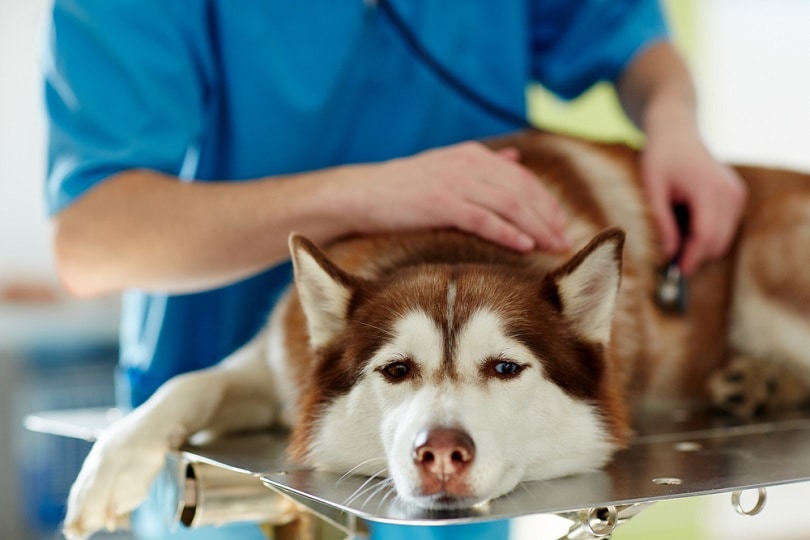
6. Foamy Vomit
Large-chested breeds, such as Doberman Pinschers and Great Danes, are prone to bloat or gastric dilatation and volvulus (GDV). The stomach of a dog that gulps their food may become distended from the swallowed air, causing it to twist. Foamy vomit is one potential sign of this life-threatening condition, and it is a medical emergency.
7. Abnormal Colors
The color of your dog’s vomit can provide valuable clues about its severity. For example, green vomit can indicate accidental ingestion of rat poison (amongst other things). The ingredients in these products cause animals to bleed out internally because some are anticoagulants. Signs often go unnoticed until the damage is already done. They include labored breathing, an enlarged abdomen, and coughing. If your dog’s vomit is anything other than the normal range of light brown to white-yellow, it’s best to assume it’s an emergency and be safe rather than sorry.
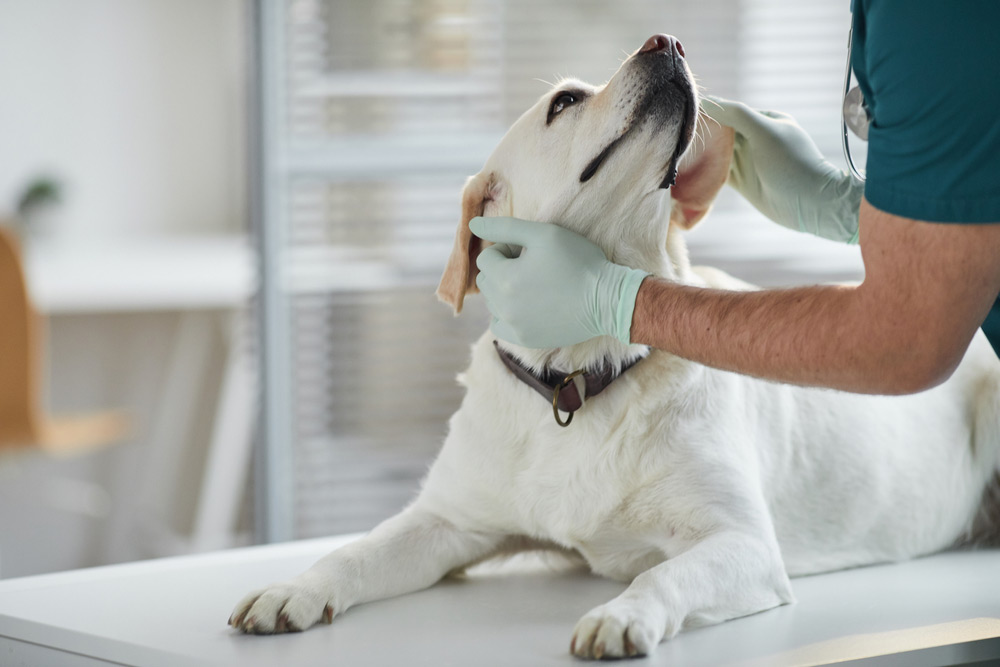
8. Non-Stop Vomiting
Non-stop vomiting requires immediate veterinary intervention because of the heightened risk of dehydration and its complications. Poisoning is a possible cause, but other possible culprits are food intolerances, adverse reactions, and intestinal blockage. Dehydration is the immediate concern, requiring prompt treatment to get the vomiting under control.
9. Lethargy
Many health conditions have multiple signs with several common denominators. Lethargy is another indication of a potentially serious problem. If your dog is usually active, you’ll likely notice this sudden behavior change right away. It’s often accompanied by a loss of appetite, necessitating veterinary intervention to prevent dehydration.

10. Unexplained Weight Loss
Pet obesity is often more of a concern than weight loss. A growing puppy may appear gangly as they grow with their increasing caloric demands. However, unexplained weight loss in an adult dog accompanied by chronic vomiting is serious. Conditions that can cause these signs include kidney failure and cancer. A vet visit and a complete workup are necessary to identify the cause.

Diagnosing the Problem
Diagnosing the cause of your dog’s vomiting is like a mystery. Your vet needs information to figure out what exactly is causing it, although the possibilities are numerous. They will likely begin with your pet’s complete medical history. They will also ask about any unusual behavior or possible encounters with toxic substances or incidences of chewing inappropriate objects. Further testing includes X-rays or ultrasounds, along with bloodwork.
Your vet will also provide supportive care, which can include intravenous fluids to alleviate dehydration. Bloodwork will identify any electrolyte imbalances for additional intervention. Treatment and the prognosis depend upon the results of this preliminary work. If you suspect accidental ingestion, bring the packaging of said item if available.
If you are unsure if a vet visit is necessary, you can talk to a vet online first for guidance on the next steps.
If you need to speak with a vet but can't get to one, head over to PangoVet. It's our online service where you can talk to a vet online and get the advice you need for your pet — all at an affordable price!


Conclusion
Often, vomiting isn’t a sign of concern if it only happens once. The presence of other signs raises the red flags of something more serious and worthy of further investigation. We recommend watching your pet closely if they have vomited. We also suggest erring on the side of caution. It’s far better to play it safe with a vet visit than let something more severe go untreated.
See Also:
- What to Do If Your Dog Is Sick & You Have a Job: 8 Vet-Approved Tips
- What Causes Dogs to Collapse After Vomiting? Our Vet Explains 5 Possible Causes
Featured Image Credit: SeventyFour, Shutterstock
